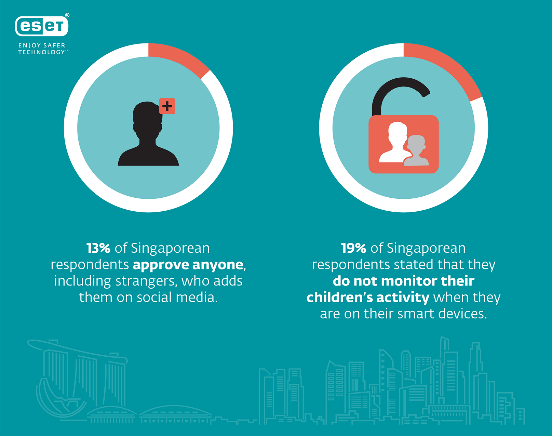Social networking sites (like Facebook, Twitter and Instagram) are online communities of internet users. Members of the communities create online profiles which provide other users with varying amounts of personal information, as a means of breaking the ice to get to know one another. Once users have joined the network, they can communicate with each other and share personal interests, in the hopes of connecting with other like-minded individuals.
While these networking platforms serve the purpose of keeping family and friends connected to one another, they have also been abused by cybercriminals as platforms to prey on unsuspecting users, particularly children. Children are more likely to unwittingly expose their families to online risks, for example, by downloading malware that could give cybercriminals access to their parent's personal information.
As adults, we too fall prey to online scams by cybercriminals, which is what makes it imperative to protect our children on the internet. While cybersecurity software can help protect against some threats, awareness and education is key to ultimately safe usage.
Here are some areas to consider for your children when they begin using social media:

The importance of personal information
Before your children start using social media, its important that they understand who they should be connecting with and contacting, and who they shouldn’t. Personal information such as location, email address, phone numbers and date of birth, shouldn’t be divulged to anybody online, whether they think they know that person or not. Thankfully, according to ESET’s APAC 2018 Consumer Behaviour Survey, only 13% of Singaporean respondents approve anyone who adds them on social media.
Beware the wolves in sheep's clothing.
Child predators can stalk children on the internet, taking advantage of their innocence, abusing their trust, and, perhaps, ultimately luring them into very dangerous personal encounters. Educate your children that people they speak to online, may not necessarily be honest about who they are and what they are saying. Trust shouldn’t be given easily. 19% of Singaporean respondents in ESET’s APAC Consumer Behaviour Survey 2018, stated that they do not monitor their children’s activity when they are on their smart devices.
Cyberbullying is still bullying
Social media and online gaming platforms are the virtual playgrounds for today’s up-and-coming generation. In certain circumstances, the antics of the playground continue online, whereby children are mocked in social media exchanges or via online games, where their characters can be subjected to incessant attacks, turning the game into a humiliating ordeal.
Overall, social media can be a fun platform for children to explore and enjoy. The best foundation a parent can provide is to not be overly strict, as a total ban may push your children to hide their online profiles and activity from you. It’s important that they include you in their endeavours so that you know who they are speaking to and you’re able to monitor their activity.